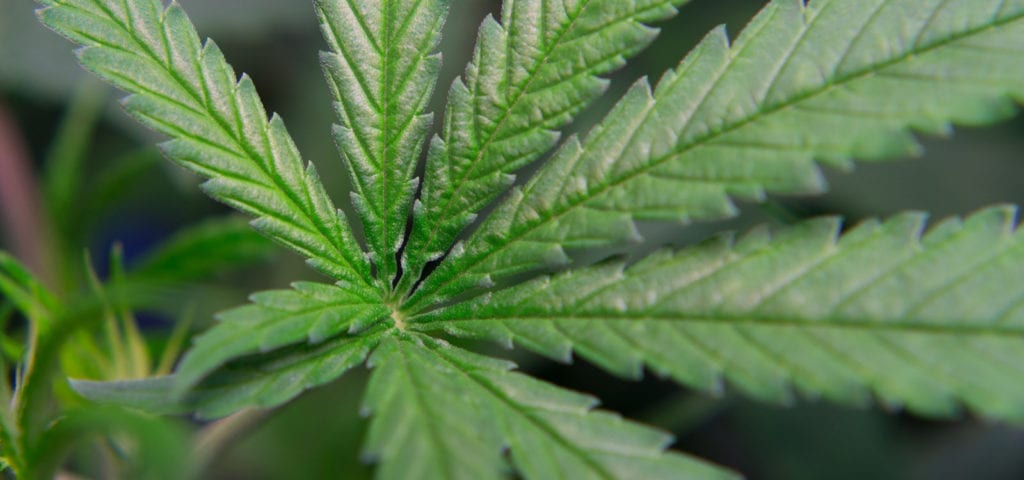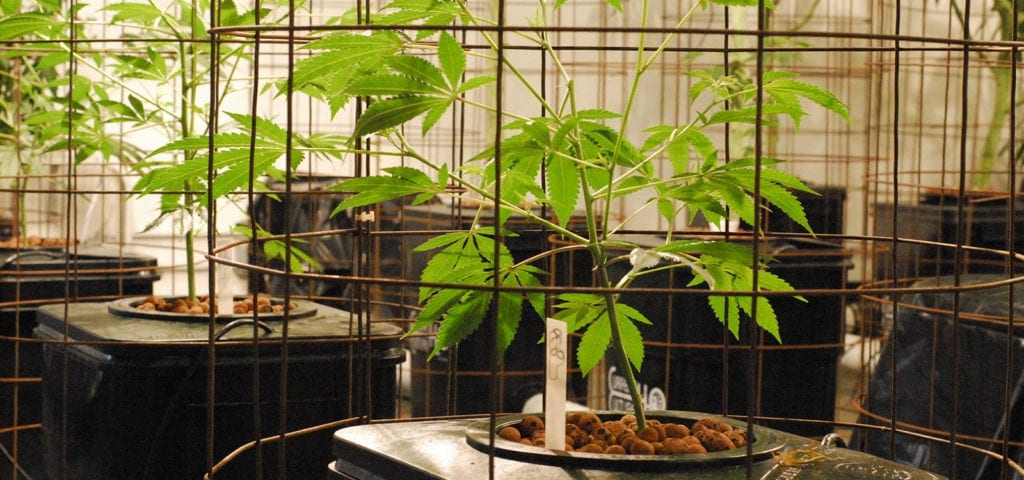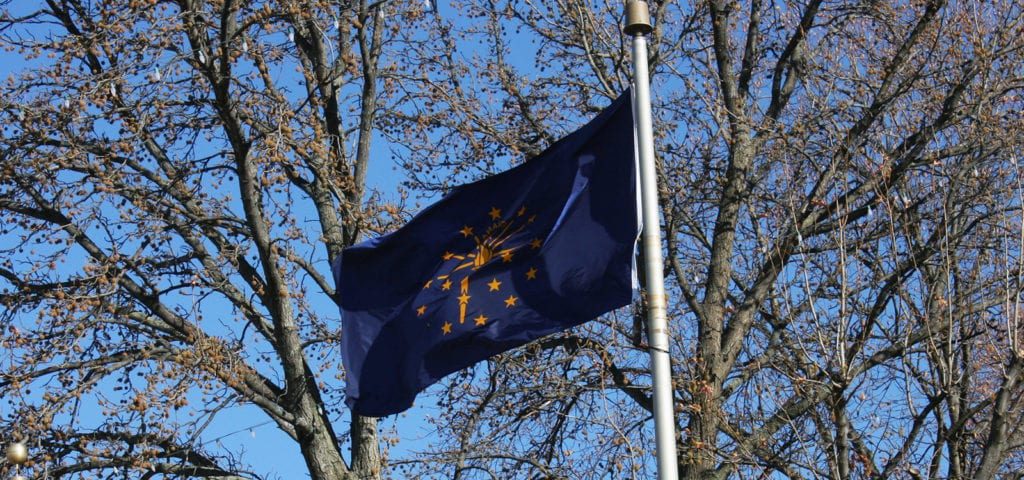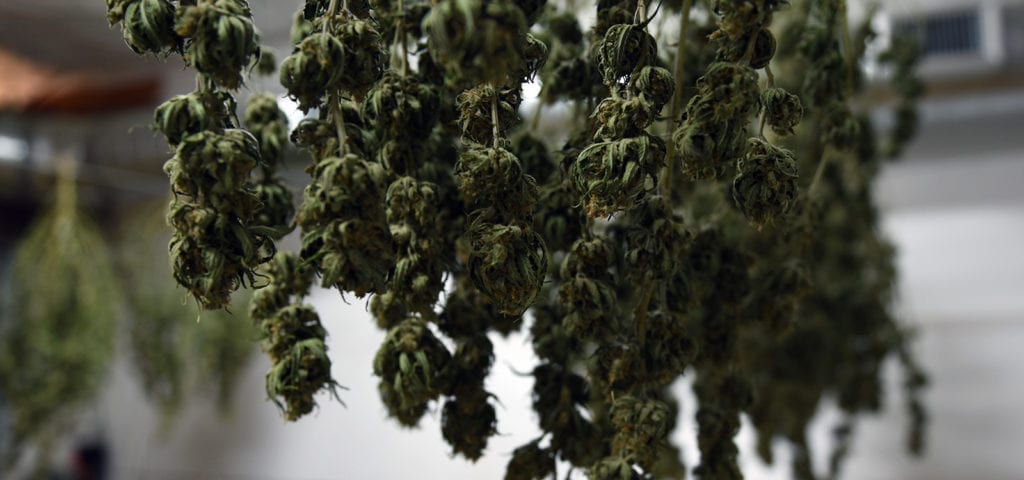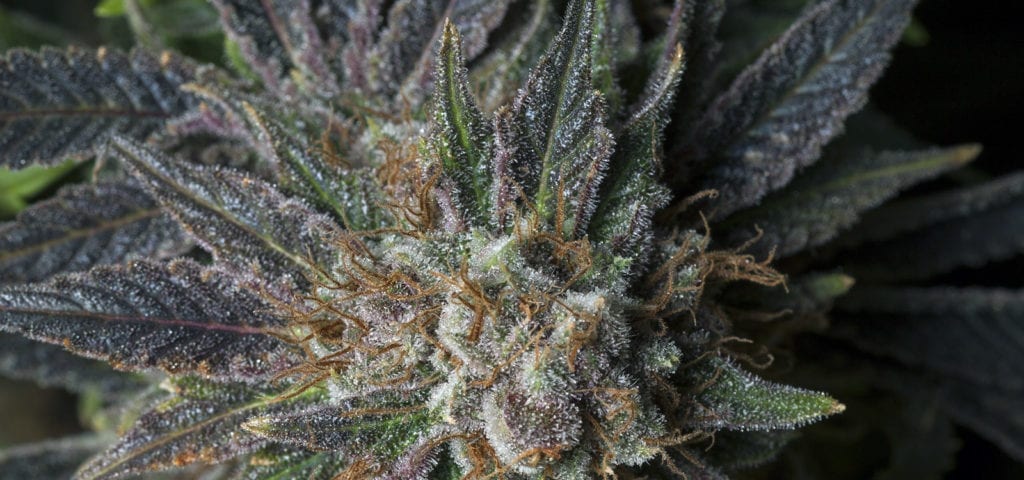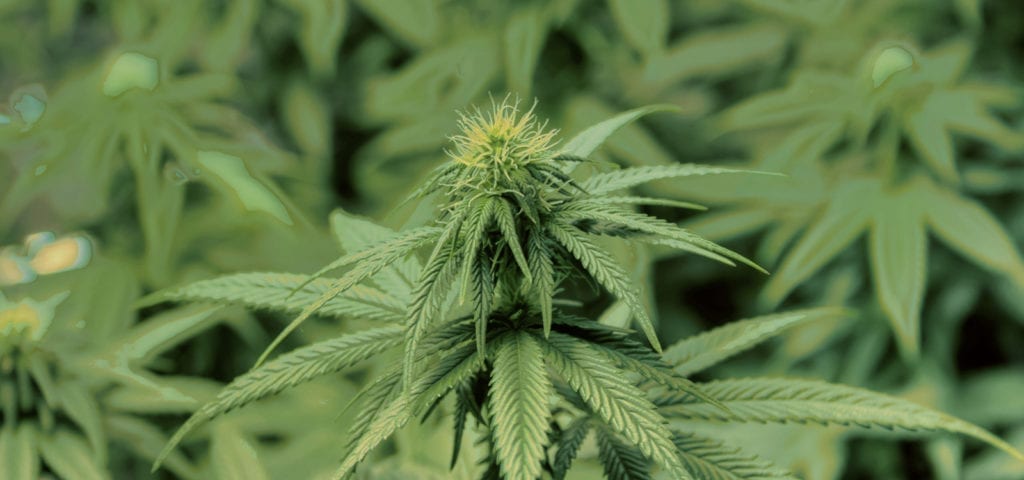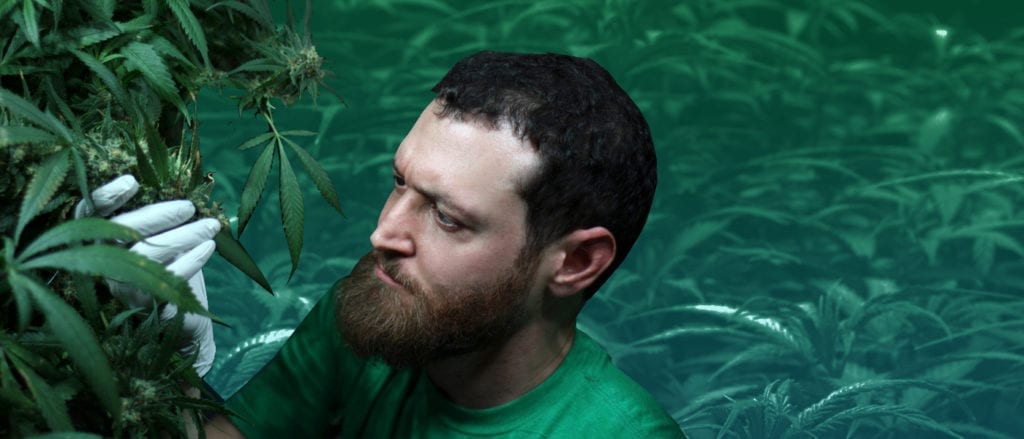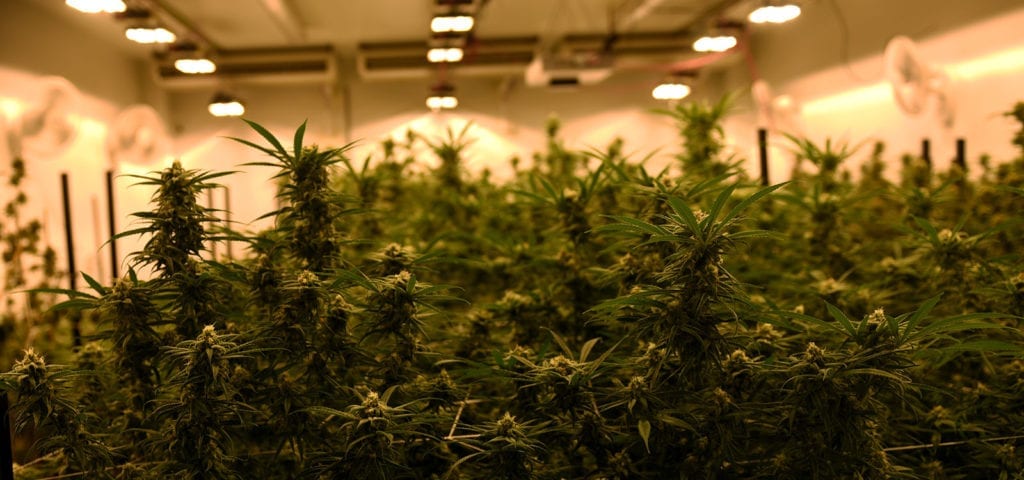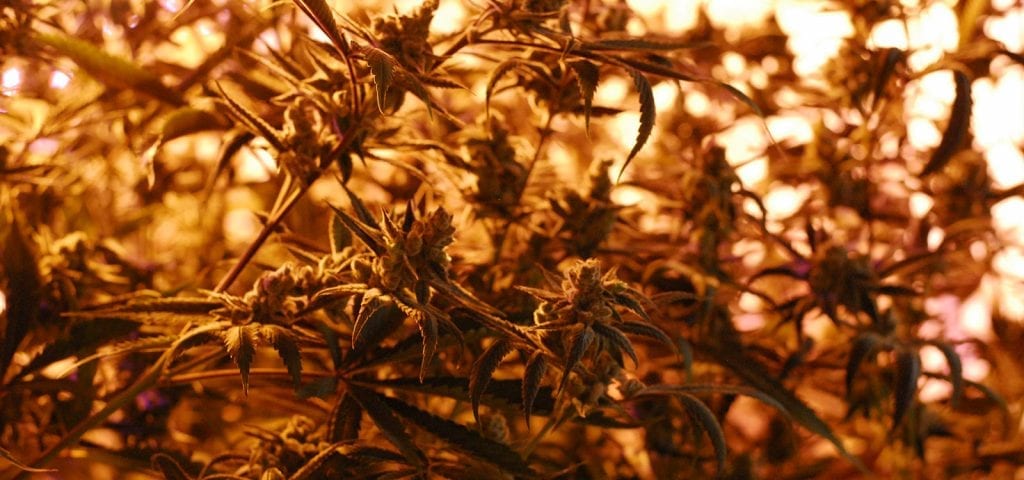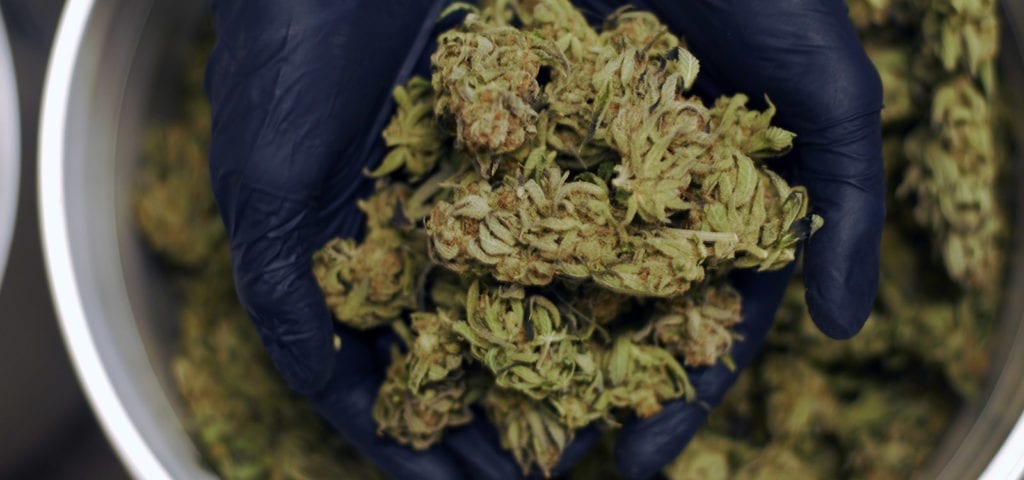Ben Ward is the CEO of Maricann, a licensed medical cannabis operator in Canada who recently announced their international expansion into Germany’s nascent medical marijuana industry.
Ben recently joined Ganjapreneur.com podcast host TG Branfalt to discuss the intricacies and future of Canada’s cannabis industry, the recruitment of Maricann’s expert talent and executives, how using green technology has benefited the company’s cultivation facility, Ben’s thought process leading up to and throughout the company’s landmark expansion into Europe, and more!
Listen to the podcast via the player below, or keep scrolling down to read a full transcript of this week’s Ganjapreneur.com podcast episode.
Listen to the podcast:
Read the transcript:
TG Branfalt: Hey, there. I’m your host, TG Branfalt, and you’re listening to the Ganjapreneur.com podcast where we try to bring you actionable information to normalize cannabis through the stories of ganjapreneurs, activists, and industry stakeholders. Today we’re joined by Ben Ward, he’s the CEO of Maricann. How you doing this morning, Ben? It’s great to have you on the show. You have a lot of stuff going on, but before we get into all of that, that great news, let’s talk about you, what’s your background? How did you end up in the cannabis space?
Ben Ward: Yeah. My background is working in international development and infrastructure projects, and then I worked for a family office, a group of Canadians, and built their projects on their behalf, and one of the things that we looked at investing in the early stage much before Colorado legalization was the cannabis market, and then made some real estate investments in different US states based on cannabis opportunities and the cashflow that existed from them, and then learned a lot about the industry from those opportunities, and then decided to get fully involved and moved ahead and got full-time in the cannabis industry.
TG Branfalt: Here in the US there’s a hodgepodge of cannabis laws depending on where you are. In Canada, medical marijuana right now is federally legal, so what I’d like you to do is can you tell us how the creating a canna-business works in Canada?
Ben Ward: Sure. You have to apply to the federal government, to Health Canada, for a license to produce and distribute cannabis, and then that process is quite rigorous. There are over 2,000 applications that have gone in, and only 51 have been granted, so there’s quite a few barriers to entry. You have to first build your complete facility, have to install all of the requisite security plan for that, you have to install all of the fertigation systems, grow area, everything from the cloning process all the way through has to be specified in SOPs, you have to show how that’s compliant with Health Canada regulations, and then all the way through to your drawing and extraction process for oils. You basically have to build it and they will come with the hope that the government will license you.
Maricann was the 256th applicant in 2013 for a license from Health Canada, and received its license to cultivate in March of 2014, and has been operating since with a cultivation and distribution license, and we’ve been operating with our extraction and distribution of extracts license since September of 2016. Not all licenses are created the same, getting involved to be a cultivator and a distributor is quite intense and requires a lot of specialty staff, qualified persons, individuals with scientific background because we treat it like a pharmaceutical product, it has to be grown as medicine and treated as medicine right from the very beginning.
TG Branfalt: I took a look at your staff, you have a very versatile and experienced executive staff over there, what do you look for with regard to talent? What’s the most important attribute for you as a CEO looking for this talent?
Ben Ward: It really all depends on what area we’re looking for, when we’re looking for sales and marketing, we’ve looked for the nutraceutical world, there are a lot of parallels there from where the nutraceutical world was starting to become popular 30 years ago. In that space, everyone thought that nutraceuticals were snake oil, they weren’t required, you could get everything you needed from eating food, which is true but if you’re not getting everything you need from eating all the right foods, nutraceuticals can help, so you had physicians who didn’t recommend taking things like vitamin C or other things like that, now 98% of physicians take a nutraceutical every day. There’s a lot of parallels how to penetrate the market, a lot of experience from that, and we’re focused on improving people’s health and wellness, so we look at parallels from the marketing side for that.
When we look at the formulation side, we’re going to the pharmaceutical world. We hired our director of operations for our Langton site, our main cultivation area, from Apotex, a large generic pharmaceutical producer. Then, our qualified person, who’s a PhD in Germany, Thomas Kron, his background was running the Bitterfeld Facility for Bayer where they made nine billion capsules a year.
It depends on the area of the business where we’re looking, but we can pull and draw talent from a lot of great existing talent from different industries that have parallels to the cannabis industry. For cultivation, we went to Colorado to Midwest Ranch where they produce cannabis in a large greenhouse grow operation, and we brought in Jeff Ayotte and Jen Ayotte who worked there, and got them to put their experience over five years there to work here. It’s a matter of having to have relationships in a lot of different areas and draw and pull talent from people who have the applicable skill sets. There’s no real one solution fits all.
TG Branfalt: When you’re finding people outside of the cannabis space, as you had mentioned, pharmaceutical firms, what is their initial reaction to entering this space? Is there hesitation on their part because it’s cannabis?
Ben Ward: Definitely. When you look at our founding group, Neil Tabatznik and Raymond Stone, two of our directors, and Eric Silver, who’s a physician, going from the pharmaceutical space and medical supply business where they had been successfully in the past, and our COO, Terry Fretz, who had run two large pharmaceutical businesses into cannabis, there was a hesitation of, do I really want to be involved in cannabis? Is this something that my grandkids would want me to be involved in? How is this perceived socially? All the people we have on board don’t have an issue with it, but I’ve gone through the process of interviewing individuals, specifically in Canada and Germany, who would have fit really well, but because it’s cannabis when the job offer went out, they just couldn’t get past it and couldn’t move there.
We’ve been disappointed by some individuals who don’t want the stigma attached to themselves … At the same time as an ethical business, people that we do business with and people who are involved in the organization need to be proud of what we do and say that this improves people’s lives and there’s an opportunity for us to work at a brand new industry that’s expanding globally. It’s an exciting time.
TG Branfalt: In our last interview we were discussing Germany for a print piece, and you and I briefly discussed green technologies that you employ, specifically a concession road site that you guys operate, netted you a $4.5 million grant for expansion on that project, can you tell you me about the green technology methods that you employ and how this was appealing enough to get you such a huge grant?
Ben Ward: Yeah. There are standard grants in the province of Ontario in Canada that apply for energy efficiency and rebates, so what we’re doing is we’re taking one natural gas source and turning it into four different forms of energy, and we create all of our CO2 through that, all of our required heat, and we create all of our electricity through natural gas, cogen. That gave us a great efficiency rating where the facility is actually 97.5% energy efficient. We’re working with Rockwell Automation, with Johnson Controls.
Rockwell Automation, another group based in Cleveland, very conservative company traditionally, we have $3 million of automation we’re putting into our facility, and the CEO of the company said, “We’d be proud to work with Maricann and to publicly disclose that because we’re an ethical company and we’re not going to be ashamed of the people that we work with. We won’t just take your money and say that we don’t have a relationship with you and not support the … like you see with a lot of groups working in the US because they’re afraid of the federal prosecution possibilities.” Working with Rockwell gives access to their main systems that we’re incorporating, and the automation systems that make us energy-efficient, operationally efficient, and we have high-performance new manufacturing credits from the province of Ontario as well.
The rebate total, once we’re fully done, the upfront portion is 4.5 million. Over five years, the government will give us back $14.2 million because of energy efficiency. If we look at a total, $27 million we’re paying for our whole operation of 217,000 square feet, with the natural gas, cogen, in place, all of the Automation boiler systems, expansion, and all of the upfront investment provides the required site services for the next 600,000 square feet of expansion.
When we look at that number, over 50% of our whole project is rebated by the province because we’re energy-efficient, so capturing our own rainwater on the roof, taking that into cisterns, filtering that and then using that for our ebb and flood system rather than just pulling from groundwater. That’s incredibly efficient. Every optimization and efficiency that we could possibly put in place, we’ve done, including our glass system from Havecon in the Netherlands and all the automation from Rockwell.
TG Branfalt: That’s really incredible. Here in the states, California, as they’re rolling out their recreational market there, they’re mandated to use a certain amount of water, not use too much water, depending on where the rules land. They’re still working those out, but in the initiative approved by voters, water usage was a big thing. As you might know, California goes through droughts. Conservation doesn’t sound like something that was mandated in Canada, so as the CEO, why was it important to you to ensure that you incorporated clean and green tech into your expansion and your building?
Ben Ward: It’s the dirty secret about the green industry is that it really isn’t that green. The number one input for most cultivation operations, especially indoor, is electricity, so you’re burning a lot of electricity, it gives you a long tail pipe, and then water, the amount of water that’s used and not recycled by most groups is significant, and you create wastewater because all the nutrients that are in the water can’t be … For most groups that don’t recycle them, they just flush them and then they end up in the sewer system or becoming groundwater contamination is a future possibility.
Then, your third highest input cost is usually labor. Your first two inputs are not beneficial to the environment. The main person responsible and credited with the green initiative for us is, Jeff Ayotte, and he built it in Midwest Ranch in Colorado down near the New Mexico border in a little town called Boone. What they did … The groundwater and the water rights were more expensive, the water was more costly than cannabis, so they put together a system of water conservation, recirculation, collection, so we took his learning, his experience, and put that into play in our operation in Langton because we were looking for a green solution so that we weren’t guilty of being one of the culprits of creating green medicine but not being good for the environment.
What Jeff did in Colorado, and partly because he was forced, was got every single efficiency out of the operation for energy and every single efficiency out of his water in his operation, so we took that learning and incorporated it into our facility in Canada. His experience in working with Johnson Controls and Rockwell Automation gave us the opportunity to put all of the systems in place and do it right for the first time, so from Jeff taking everything he owned and putting into Midwest five years ago, and stubbing his toe all along the way, having a paid education there, and taking that learning as he’s now sold that operation to Mahatma and bringing his learning to Canada, has been incredibly beneficial for us.
That was based on my experience in investing in the cannabis world, being introduced to the right people, and knowing who we wanted to bring in, back to where do you source and find talent? In the cannabis world, everybody will tell you they’re a grower, everybody will tell you they put together a shiny little Christmas tree with trichomes and something that could win a cannabis cup, but when you go to it and you meet the people who really have developed a cannabis-cup award-winning strains, the people who are the real volume operators from a cultivation side, it becomes really lean six Sigma operations where individuals have figured out how to get the most and the best out of the plant, but at the same time how to be energy efficient, green, and consistent with the philosophy of improving the world and improving people’s wellness but not harming the planet at the same time.
TG Branfalt: Well, I really want to applaud your efforts for incorporating green and clean technologies. We got to take a quick break. This is the Ganjapreneur.com podcast. I’m TG Branfalt.
This episode of the Ganjapreneur.com podcast is made possible by name.com, a global provider of domain name, web hosting and email services. Every successful cannabis business needs an online presence, and every successful online presence begins with the domain. From your website to your email address, a good domain is easy for your customers to remember, it looks nice on a business card or billboard, and it reflects the true identity of the project it represents. It’s important to reserve your domain early on when you are starting your business as you may find that the .com address for your preferred brand or concept has already been taken. If somebody has already purchased the ideal .com for your business, they might be willing to sell it, but if they aren’t, you may have to get creative with one of the new alternate domain extensions such as .co, .club, .shop, or even .farm. Reserve your domain name today at name.com/ganjapreneur.
If you are a domain name investor or venture capital firm interested in acquiring or advertising premium cannabis domains, go to the Ganjapreneur domain market to browse a wide variety of names including strains.com, cannabis media.com, mj.com and countless others. Discover branding opportunities for your next startup and learn about listing your premium domain names for sale at Ganjapreneur.com/domains sponsored by name.com.
TG Branfalt: Welcome back to the Ganjapreneur.com podcast. I’m your host TG Branfalt with Ben Ward, CEO at Maricann.
In some interviews that I’ve read with you, you’ve also often mentioned whole plant medicine and referred to two lesser-known cannabinoids, the CBG and CBN. There’s not a whole lot of discussion on these, we’re all pretty familiar with CBD, obviously, THC. What has your company found with regard to these two compounds, CBG and CBN?
Ben Ward: What we’ve really found is that with CBN specifically, and I will say and be very clear that there is no clinical evidence at present, we haven’t done the research, which is one of things that our company is engaged in as actually completing meaningful research, doing the pharmacokinetic profiles, getting the baselines and understanding where we’re at from a starting point from cannabis and then moving through and benched to clinic research, and sponsoring that. But with CBN, you have a muscle relaxant effect.
We look at CBD and talk about its effects and what we know in retrospective analysis and being able to calm spasticity, and relax muscles ends, and to slow possible seizures, and everyone’s been focus on CBD as the miracle drug. When we look at whole plant, what I’m talking about is taking all of the benefits of the plant, finessing off and taking fractions of the … We preserve the flavanoid and terpene profile of the plant, and then extracting the different cannabinoids and taking those individually through a thin film distillation and combining those back together in the ratios that we like to have, that we believe, or could be effective for treating different symptoms that people have.
CBN and CBG haven’t been proliferated within the plant in strain development. People have been focused on THC, people have been focused from genetic development on CBD, you see the CBD industry and medical hemp industry has produced some great strains and genetics. But what we’re seeing through CBN is a muscle relaxant effect, and that in combination with CBD and working with the endocannabinoids system, it helps keeping the body balanced. Individuals who suffer from muscle spasticity, and chronic pain, and fibromyalgia, CBN is showing to be extremely effective to help people managing their pain. You need to take the whole plant. He can’t just take CBD pills and expect that that alone is going to be effective. When people take CBD capsules, you’re really just taking something that isn’t water-soluble, isn’t able to be dispersed in the stomach or the intestinal lining, you’re not absorbing it, it goes through, and then it’s metabolized in your liver. First pass metabolism isn’t the ideal way to absorb medicine. If you’re doing that, you’re destroying 85% of the cannabinoids and just creating really expensive urine.
What we’re focused on is actual absorption, bioavailability of the plant. A lot of people will talk about bioavailability and its importance, we see that in the nutraceutical world, which is why I made a parallel to that earlier, so that we’ve gone and sourced technology from the nutraceutical world, that’s patented by a group in Switzerland, that helps to take cannabinoids, which are only usually lipids, which are only lipid soluble, and have to … When you ingest a cannabis, as we’ve experienced, you end up with an edible … It has a stacking effect because it goes through first pass in your liver, takes 45 minutes to an hour and a half to onset, and that’s where you usually have most of the problem with people greening out or having other issues from that.
With our technology that we have, that’s globally patented, and we have the rights for cannabis for in hemp globally, the cannabinoids are suspended in an emulsion, they can be ingested in a capsule form or functional beverage, the applications are endless, or inedibles. Then, they disperse in the stomach and can be absorbed in the stomach and the intestine, so on your onsets within 5 to 15 minutes, and you get 80% to 85% of the cannabinoids absorbed.
When we talk about whole plant extract, it’s taking the whole plant, taking the terpenes, the flavonoids, more than just THC and CBD, or one or the other, and getting really the synergistic and synchronistic effects of the whole plant. That’s what gives you the wellness opportunity and benefit, instead of just taking one isolate and expecting that to be the magic cure.
TG Branfalt: That’s far more advanced than a lot of what we hear here in the states, do you credit that at all, the advancements that you’ve made, to the little more welcoming research community in Canada?
Ben Ward: Yeah. I accredit it to four years of legalization. Colorado was the absolute epicenter of cannabis four years ago, and our scientific director worked in Colorado and he decided to come to Canada because he can do all the research that he needs, and then that opened the world to, “Wow. Well, here’s an opportunity, here’s what these people are doing in Switzerland. Here’s what these people are doing in Germany.” Then, you pull together from the international space, and then what we did is took technology from the nutraceutical world, from the pharmaceutical world, then paired it with what we know about cannabis, and when you merge those two together then you have an opportunity to take existing delivery systems, things that people are comfortable with, that physicians, that pharmacists, that people in general as patients are comfortable taking … When you have a capsule that can have an onset effect and help to reduce chronic pain that has an onset in five minutes or 10 minutes, and isn’t a gummy bear or something that has other effects on your health and will stack in your liver, is just taking those advances globally from other industries, and quite frankly, from technology that Big Pharma uses, and applying it to the cannabis world.
I’m excited about taking the best in class opportunities and moving them into cannabis. I think you’ll start to see these roll out in the US as well as the market develops, as the market becomes more mature. It’ll move away from being pre-rolls and other things like that, into things that people take as everyday medicine, that are things to improve their lives.
I think that the discussion about inhalation will start to decrease, and we’ll see people that we see in our average patient is 55 years old plus, female, and suffers from fibromyalgia chronic pain. Those are people who aren’t familiar with cannabis, as I wasn’t when I started after a car accident 10 years ago, and if they can have a traditional delivery method instead of having to inhale, it’s much more approachable for them.
TG Branfalt: You had mentioned Germany, and I want to discuss that in a bit more detail, but before we do that we got to take a short break. This is the Ganjapreneur.com podcast. I’m TG Branfalt.
Commercial: At Ganjapreneur, we have heard from dozens of cannabis business owners who have encountered the issue of cannabis, which is when a mainstream business, whether a landlord, bank, or some other provider of vital business services, refuses to do business with them simply because of their association with cannabis. We have even heard stories of businesses being unable to provide health and life insurance for their employees because the insurance providers were too afraid to work with them.
We believe that this fear is totally unreasonable and that cannabis business owners deserve access to the same services and resources that other businesses are afforded, that they should be able to hire consultation to help them follow the letter of the law in their business endeavors, and that they should be able to provide employee benefits without needing to compromise on the quality of coverage they can offer. This is why we created the ganjapreneur.com business service directory, a resource for cannabis professionals to find and connect with service providers who are cannabis friendly and who are actively seeking cannabis industry clients.
If you are considering hiring a business consultant, lawyer, accountant, web designer or any other ancillary service for your business, go to ganjapreneur.com/businesses to browse hundreds of agencies, firms and organizations who support cannabis legalization and who want to help you grow your business. With so many options to choose from in each service category, you will be able to browse company profiles and do research on multiple companies in advance so you can find the provider who is the best fit for your particular need.
Our business service directory is intended to be a useful and well-maintained resource, which is why we individually vet each listing that is submitted. If you are a business service provider who wants to work with cannabis clients, you may be a good fit for our service directory, go to ganjapreneur.com/businesses to create your profile and start connecting with cannabis entrepreneurs today.
TG Branfalt: Welcome back to the ganjapreneur.com podcast. I’m your host, TG Branfalt, here with Ben Ward, CEO of Maricann. Before the break, you had mentioned Germany, I’ve written a couple thousand words about your guys’ entrance into Germany, just for people who may not have read that piece or may just be hearing about Germany’s federal medical cannabis legalization for the first time, why did you choose Germany to expand?
Ben Ward: I was over there three and a half years ago and worked with a group in Munich for quite a long period of time in another related business, and this article started coming out, you started to see the front of the newspaper talking about cannabis activism was moving ahead, individuals are interested, there is a groundswell of support for it, so what I looked to do is to secure a facility that would be ideal for cannabis cultivation and would be a great place that we could complete extraction and do pharmaceutical formulations of cannabis.
One of the groups that I worked with there, the company’s called Zollner, Z-O-L-L-N-E-R, they’re one of the world’s largest manufacturers of electronic components for the automotive industry, and their head of facilities globally is a great friend, they operate in five continents, and I showed them what I was looking for, what we were doing in Canada, and he said, “Well, I have a perfect facility for you. Why don’t you fly to Dresden and see it?” I flew over there and looked at the facility, put a down payment on it personally, and then ended up purchasing the facility, so I saw three and a half years ago where Germany was going. The plant was a formal cargo operation, was built at their cost of €80 million 20 years ago, and I was able to pick it up for €3.4 million because of the uniqueness of the facility, it couldn’t be used for warehousing or anything else, or logistics, so it’s perfect for cultivating cannabis, so we wrapped it up.
People made fun of me, they call me the Sausage King, that I used to be the sausage guy, … so I was a butt of a lot of jokes, and in most conferences people would snicker and laugh at me, but then when Germany legalized medicinal cannabis in January of this year, all of a sudden the phone calls started coming in and everybody’s trying to buy in or partner. Not every risk that you take in life works out, but that was a big risk, personally, that I took, and my wife said well … She would have liked a summer home rather than a sausage factory in Dresden, but it ended up working out for us.
We’ve gone through the process, we’ve outfitted 75,000 square feet for research of genetics to really dial in what we’ll be able to produce there and move ahead in cultivation. The cost to outfit that whole area of 75,000 square feet was only €940,000, so what was something that was a laughingstock, three and a half years ago now has worked out pretty well.
TG Branfalt: How similar are the German rules compared to the Canadian rules?
Ben Ward: The German rules are somewhat similar to the Canadian rules but even more strict, more restrictive, you have to cultivate indoors, you’re not allowed to cultivate in a greenhouse, so the security plan is more restrictive, but where I think that the German system really won and moved ahead is on the distribution side. In Canada, we have to distribute direct to patients, we’re not allowed to distribute to pharmacies, so individuals go to their physician, then they’re referred to a cannabis clinic in Canada, and then they have to get their prescriptions, then register directly with a licensed producer like Maricann, and then they have to go through the registration process, fulfill their order and then they get it shipped to their home. That may sound easy and simple, but people are creatures of habit, they want their order fulfillment in the same day, they go to the physician, they want their medicine because they went to the doctor because they have a problem.
In Germany, what they did is they’re distributing through pharmacy. They can go to their physician, they can get their prescription, they can go to their pharmacy, they call their insurance company beforehand, cannabis is covered as a complementary therapy in Germany under 26 of the 28 insurance companies there, and then they pick up their product from their pharmacy. They made it easy and accessible for people. There’s no special store you have to go to for cannabis, cannabis is normal medicine. I think that’s really important for where we’re going in the future involving pharmacists, and just seeing it as cannabis, not as this taboo product that has all of these questions about it. It’s medicine, it helps people increase their life, and whether somebody is in palliative care, someone is in end-stage cancer, or someone’s suffering with chronic pain, or if they move over to the lifestyle where people are using it to destress or other things like that, I just think the normalization of cannabis and destigmatization of it is important. I think Germany really got it right in treating it as regular medicine.
TG Branfalt: We read a lot about the tender process, what you had to go through, are you still going through that? Can you explain what that tender process is in Germany?
Ben Ward: Yeah. We’re still going through the tender process in Germany, it’s a submission by groups with experience for qualification to bid to supply the … which is the head of their cannabis agency with product on a wholesale basis. That’s one of the aspects of what they’re doing in Germany.
Then, currently there’s an import market to groups of narcotics wholesale licenses, and that’s how the product’s being distributed, so that market is moving ahead quite rapidly as well.
TG Branfalt: Are they allowing flower there or is it just oils? What products are going to be available in Germany’s medical cannabis market?
Ben Ward: Right now they have Drabinol, which is produced by Bionorica, a herbal plant manufacturer. That’s provided to patients at their pharmacies. It’s a plant extract, and it’s quite restricted but it’s an extract that people use to deal with chronic pain or to increase appetite.
Then, when you have flower, which is distributed … Right now most of the market is flower being distributed to pharmacies, and the pharmacists will take that compound and make it into products for patients, so there’s more involvement rather than just dispensing the product to the patient, the pharmacist’s compounds and makes it into formulations for the patient.
TG Branfalt: Switching gears a little bit, your home base of Canada is still considering legalizing cannabis for adults that the federal legislation has been introduced but has been subject to a lot of debate, do you think that this will affect medical cannabis companies and how?
Ben Ward: Well, there is a license to produce cannabis in Canada, you have to … Much like your FDA, if you’re going to produce something that’s going to be ingested into someone’s body, you have to pass the FDA, whether it’s food, drugs, or anything else like that for ingestion. You have to follow their protocols. In Canada, we have Health Canada, our FDA equivalent, and so if you’re producing cannabis and going to distribute that, you have to pass Health Canada’s tests and be licensed by them.
For us, we’ll be participating in the lifestyle market, and the government has mandated that it’ll move ahead next July, and there are a lot of unknowns about the product that we’ll be able to supply to that market, distribution, every province is going to be able to do their own distribution. We were to asked to consult with the Attorney General of the province of Ontario to assist in the process for distribution, so there’s a lot of unknowns in place but we know that the government, which is a majority … If you have in the US the equivalent of having the House, the Senate, and the President all from the same party, and this is one of their key initiatives, you know it’s going to be driven through. We have a majority government in Canada at the federal level right now, the liberal government. This is one of the key initiatives to deliver on, and they will be delivering for next July.
TG Branfalt: Do you anticipate there may be a separation of medical cannabis and recreational products?
Ben Ward: Yes. What this means for the medical cannabis market is we believe that the product will be distributed through pharmacy, so traditional formats, capsule, tincture, topicals, eventually looking to a transdermal patch, use in hospitals, this is where we see the medical aspect of the market going.
The lifestyle market is projected to be about two thirds of the market, the medical to be about a third, and as we see more companies covering their employees under their health and benefits programs for medicinal cannabis, we think the market will grow to be much larger. When we look at accidents benefit plans from people that are involved in motor vehicle accidents now being covered under their accident benefits … It’s a big market, and we see cannabis as medicine, so whether someone’s using cannabis enhancer in what we call the recreational market or using it to treat a chronic condition in the medical market, we’ll be able to be in both areas of the business.
TG Branfalt: You had said that you were consulting with the Attorney General, I believe you said, what role do you think that existing operators should have in the crafting of these lifestyle or recreational regulations in Canada?
Ben Ward: I think we can provide guidance on safety. I think that the government is looking at this, they’ve done their research, but they’re looking at different methods of ingestion, what products to move ahead with. Obviously, we’re pushing for all products that you have in the US to be allowed in Canada, we don’t know whether we’ll get there but we already have the existing research from Colorado, California, and every other the state where cannabis is present as what people’s preferences are, what they want. Vape is a huge part of the market in the US, and currently in Canada we don’t have that allowance or permission to provide vape products to people or vaping oil, and so the existing graymarket supplies that to people but then they cut with propylene glycol, other things that are harmful to you so you have people getting high from PG and inhaling that rather than getting high from taking THC, and have potential adverse health harms.
Where we’re looking at is how do we introduce safe products into the market? How do we encourage the government to allow all of the products and then create those responsibly and deliver them to the market in a safe way so the products are safe, there’s proper guidance around ingestion so you don’t have people taking 20 grams of dry flower, homemaking their butter, and they end up with an inconsistent product and their one tray of brownies at one end and having a greenout and sleeping for two days. Let’s make it a normal approachable product that people have already told us what the best way that they want to ingest it is, and let’s supply that to them. That’s where we can help with the government.
TG Branfalt: Finally, what advice do you have for entrepreneurs? You saw Germany’s market evolving, getting ready three and a half years ago, so obviously you see things a little bit differently than a lot of your counterparts, so what can they learn from you? What advice would you have for other people looking to enter this space?
Ben Ward: Don’t be afraid to fail. It’s risky, it’s a new, it’s a nascent industry, not everything you do in life is going to be successful, take a risk, do something completely different than the rest because everybody is tracking and following, once somebody’s successful everybody else plows in, large capital comes into play, and then it’s a matter of improving and optimizing business. The true entrepreneur is willing to take risks and go out there and do something a little different that may seem odd to people when they first start and isn’t afraid to fail. That’s the best advice that I can give is, if you’re not ready to fail then you’re not an entrepreneur.
TG Branfalt: So when your wife says that she wants a summer home, buy a sausage factory.
Ben Ward: For a little unhappiness.
TG Branfalt: Well, Ben, man, I really want to thank you for your time this morning. I know you’re a busy guy in Canada and in Germany, you really have a lot of insight into the industry and I hope that as you get the ball rolling in Germany that we can have you on the show again to really get into the details of that project.
Ben Ward: Yeah. Well, thanks a lot. I really appreciate your time. Germany is just the start, there’s a lot of countries that are all moving above ground now, cannabis is becoming
mainstream in some of the most conservative countries in the world.
TG Branfalt: Thanks for leading the charge over there, man, and for being so open about it. It’s sometimes tough for us to find people who are operating internationally to appear on the
show so, again, thank you so much for your time.
Ben Ward: Great. Thanks. Take care.
TG Branfalt: You can find more episodes of the ganjapreneur.com podcast in the podcast section at ganjapreneur.com and in the Apple iTunes store. On the ganjapreneur.com website, you will find the latest cannabis news and cannabis jobs updated daily, along with transcripts of this podcast. You can also download the ganjapreneur.com app in iTunes and Google play. This episode was engineered by Jeremy Sebastiano. I’ve been your host, TG Branfalt.
End
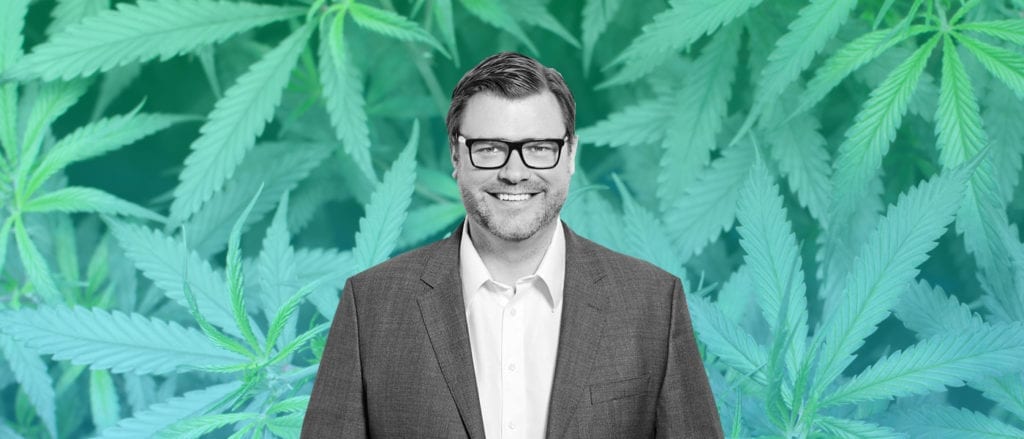
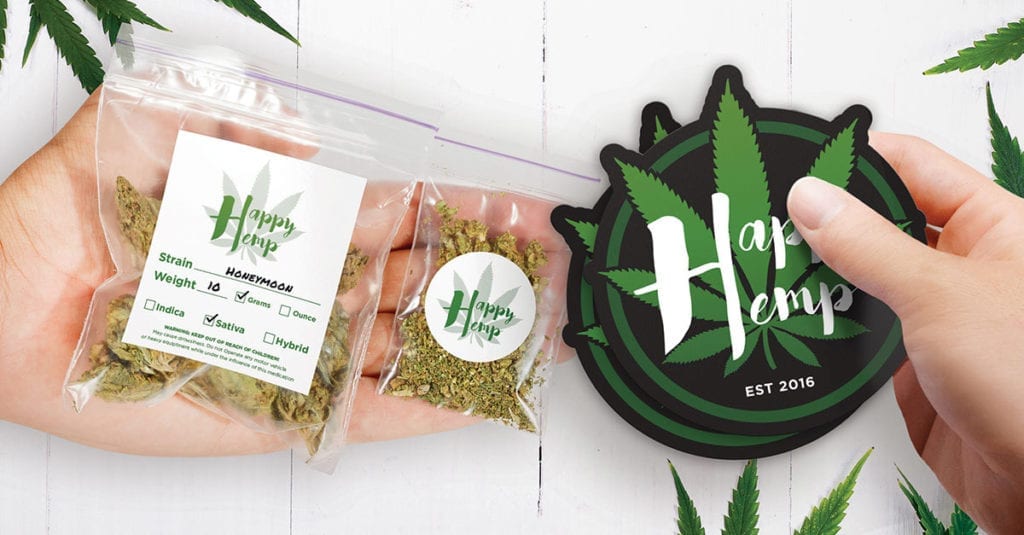
 With restrictions on product advertising so commonplace in the cannabis industry, it is incredibly important for cannabis companies to make sure they have an impactful brand. Without traditional advertising avenues, cannabis entrepreneurs need to make sure their product labels, t-shirts, window decals and more are exactly in line with what they have envisioned for their brand, and that’s not always easy — especially for startups and young companies.
With restrictions on product advertising so commonplace in the cannabis industry, it is incredibly important for cannabis companies to make sure they have an impactful brand. Without traditional advertising avenues, cannabis entrepreneurs need to make sure their product labels, t-shirts, window decals and more are exactly in line with what they have envisioned for their brand, and that’s not always easy — especially for startups and young companies.


